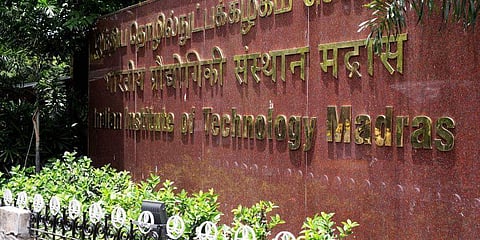

Research conducted by the Indian Institute of Technology (IIT) Madras has found that the COVID-19 pandemic poses a great risk of social isolation among the elderly, which may adversely impact their health. The research calls for greater investment from the government in public healthcare so that the effects of the pandemic on the elderly are mitigated. It states that the poor would suffer more from the pandemic.
The study was conducted by Prof VR Muraleedharan, Department of Humanities and Social Sciences, IIT Madras, and Dr Alok Ranjan, who was a Post-Doctoral student at IIT Madras till December 2020 and is currently an Assistant Professor in the Department of Humanities and Social Sciences at IIT Jodhpur.
Elaborating that the elderly who are also poor and need regular access to primary healthcare services and essential care for treatment of their non-communicable diseases, would not be receiving it due to the pandemic as their dependency and lack of mobility would have hindered them. The researchers opine that the elderly, especially the poor have already gone through enough hardships amid the pandemic and they may face more in the future. As such, the importance of strengthening the public healthcare system cannot be over-emphasised.
The research has been based on the 75th round of the National Sample Survey (NSS) 2017-18 and has been published in the international journal Globalization and Health. According to the study, only 18.9% of the elderly had health insurance and therefore they may not be able to bear large expenditures on health and 27.5% of people above the age of 80 are immobile and 70% of elders are partially or wholly financially dependent on others. The NSS survey covered 1,13,823 households and 5,55,115 individuals from randomly selected 8,077 villages and 6,181 urban areas.
Speaking about the important findings of the study, Prof Muraleedharan said, “Our research highlights ways in which the elderly may have suffered even due to COVID-19 control measures, such as social/physical distancing that could increase depression, and lead to a higher chance of inflammatory response in the elderly. There are several such ailments specific to the vulnerable elderly population.”
The researchers want to extend the result of this study to a policy. They plan to carry out detailed surveys among the elderly population, particularly in Tamil Nadu, to design effective rehabilitative care which is almost absent in India’s public healthcare system. The research group is closely working with the Department of Health and Family Welfare, Government of Tamil Nadu.
“The future is uncertain and we may experience such pandemics and adversaries in coming years and therefore it is important that we take lessons from the current pandemic to ensure that such disasters in the future are less detrimental to the physical and mental health of the elderly,” said Dr Ranjan.
